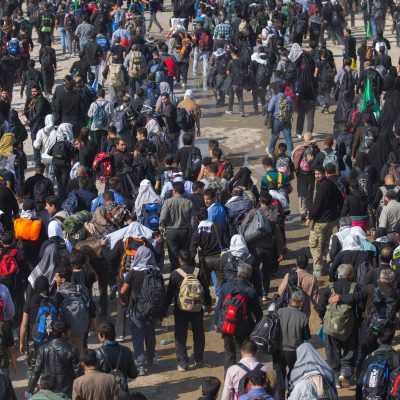For a European policy on asylum, migration and mobility

This policy report by the Jacques Delors Institute, entrusted to Jérôme Vignon, aims to help both candidates for the European Parliament and voters to comprehensively review the complex issue of migration, the resolution of which cannot be reduced to the establishment of “controlled centres” or highly hypothetical “landing platforms”.
This report is based on existing data. First, the state of opinion in Europe, which cannot be reduced to an opposition between hostility to foreigners and boundless hospitality. Most European citizens reject these two extreme attitudes but reflect upon the right stance to be taken. They are filled more with doubt than fear. Together, the solutions presented in this report aim to resolve this internal tension among Europeans.
Another key element is the unfinished but existing foundations of a common European immigration and asylum policy. The report recalls the main legislation and institutions established over the past fifteen years in the fields of asylum (Dublin Regulation), the management of the external borders of the Schengen area of free movement, legal labour immigration and development aid. However, the migration crisis has undermined the strategic planning of this European policy, which is currently governed by short-term emergencies.
Nevertheless, the response to the migration challenge requires an assessment of the full extent of the phenomenon. Based on the latest available statistics, this report measures a general increase in mobility. It explains how the development of African countries will not dry up a labour emigration that will grow and that the “old continent” will need.
In the face of this shaken state of public opinion, shortcomings in current policies and the extent of the migratory phenomenon, this report makes five realistic proposals for setting a European policy on asylum, migration, and mobility:
- Standardise the conditions of access to asylum in the EU, operationally led by the European Asylum Support Office, which must be strengthened to distribute admissible applications, taking into account people’s plans. This involves the assistance of States in the Schengen area, which voluntarily assume responsibility for processing asylum applications, jointly with the States at the front line of arrivals. Mutual recognition of decisions granting refugee status should prevail between these national administrations, thus limiting flows between countries.
- Protect the EU’s external borders with a federal-type agency, factoring in national surveillance capabilities. The model that led the European Central Bank to federate the national central banks could inspire its governance.
- Organise legal labour migration at EU level. A five-year indicative target broken down by broad category of qualifications would be used to build pools of candidates eligible for a short-term work visas for job-seeking in the EU. This will make it possible to combat illegal immigration, which today undermines access to the right of asylum.
- Co-build development and migration with countries of origin to thwart smuggling channels and refocus the EU-Africa relationship on work, training, and mobility.
- Strengthen integration through mutual learning of national approaches and the adoption of European objectives.
These guidelines outline reasonable expectations for migration policy, which European citizens are entitled to expect from the future European Parliament and the next Commission.




